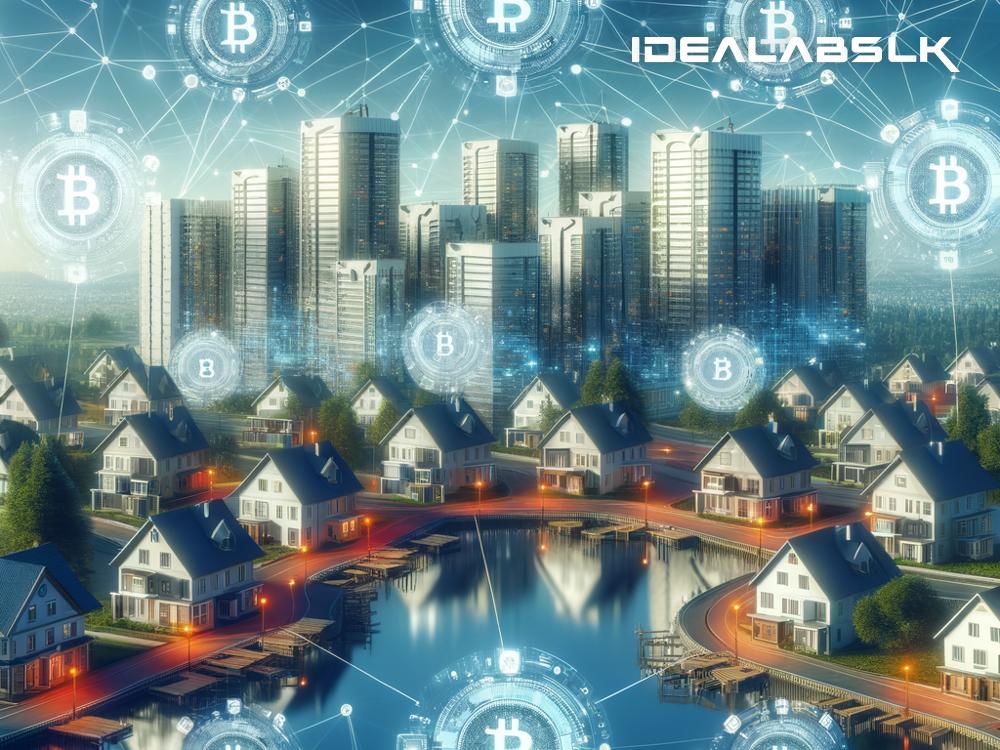Unlocking The Future of Home Buying: The Magic of Blockchain in Real Estate
Have you ever played the game Monopoly? Imagine if, every time someone bought a property, there was a way to make sure that the purchase was fair, secure, and impossible to cheat. Now, imagine applying that concept to the real world of buying houses and land! That's kind of what happens when blockchain meets real estate, especially when we talk about title registries.
What's a Title Registry Anyway?
Before we dive deep into the world of blockchain, let's unpack what a title registry is. In simple terms, a title registry is like a giant, official notebook that keeps track of who owns what land or house. Whenever someone buys or sells property, this notebook gets updated. It sounds straightforward, but it's a process that can often be slow, paper-heavy, and, unfortunately, sometimes even prone to fraud.
Enter Blockchain: The Game Changer
Imagine if this notebook wasn't just a book on a shelf in some government office but was instead a digital ledger spread out over thousands of computers around the world. This is the basics of blockchain. It's a way to keep records that is transparent, secure, and incredibly hard to tamper with.
Blockchain technology is like having thousands of copies of the Monopoly game board, and whenever someone makes a move, all the boards update simultaneously. If someone tried to cheat, it would be obvious because their board wouldn’t match all the others.
The Benefits for Real Estate
1. Security: Real estate transactions involve a lot of money, which can attract fraudsters. Blockchain technology makes it much harder for someone to forge documents or fudge numbers because everyone on the network can see what's going on and verify it.
2. Speed: Traditional buying and selling of property can take a long time because there’s a lot of paperwork and verification steps. Blockchain technology can streamline these processes, making everything faster and more efficient.
3. Transparency: Sometimes, the details of real estate transactions can be a bit murky. With blockchain, each step of the process is recorded in a way that’s both secure and visible to everyone involved. This can help build trust and confidence among all parties.
4. Reducing Costs: A lot of fees in real estate transactions come from the need to pay various middlemen like lawyers and brokers. Blockchain could reduce the need for some of these intermediaries, potentially saving everyone money.
Real-World Examples
Blockchain in real estate isn't just a theory; it's already starting to happen. Some countries and companies are experimenting with recording land ownership on a blockchain. For instance, Sweden tested a system for handling land titles and property transactions on a blockchain, aiming to improve efficiency and reduce fraud. In the US, certain cities have explored blockchain for real estate records, aiming to make the process smoother and more transparent.
The Future Is Decentralized
As blockchain technology advances, we could see a future where buying a house is as simple and secure as making a purchase online. No more worrying about whether all the paperwork is in order or if someone might have tampered with documents. Instead, you’d have a system that's both secure and easy for everyone to understand.
This doesn’t mean that blockchain will solve all the problems in real estate overnight. There are still challenges to overcome, like ensuring that digital records are legally recognized everywhere and making the technology accessible to everyone. However, the potential benefits are massive.
Wrapping It Up
Blockchain technology presents an exciting opportunity for revolutionizing how we handle real estate, making transactions more secure, efficient, and transparent. While we're still in the early stages of integrating blockchain into property dealings, the future looks promising. As we continue to explore and improve upon these technologies, we could see a world where buying a home is as easy, secure, and fair as passing "Go" and collecting $200.
So, the next time you find yourself stuck in a game of Monopoly, just think: the future of real-world property transactions might just be inspired by the game you're playing—minus the arguments over who gets to be the car or the top hat, of course!

